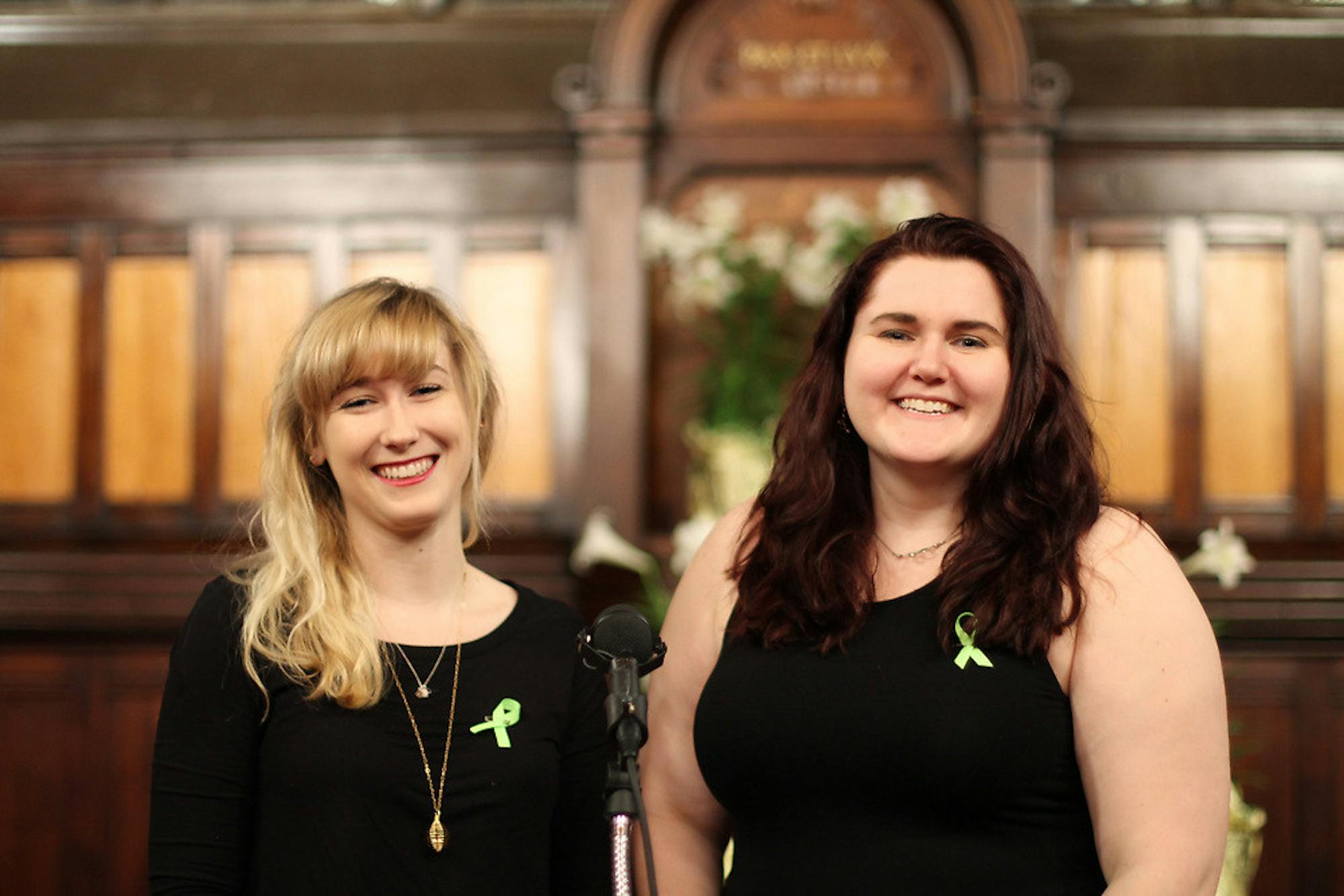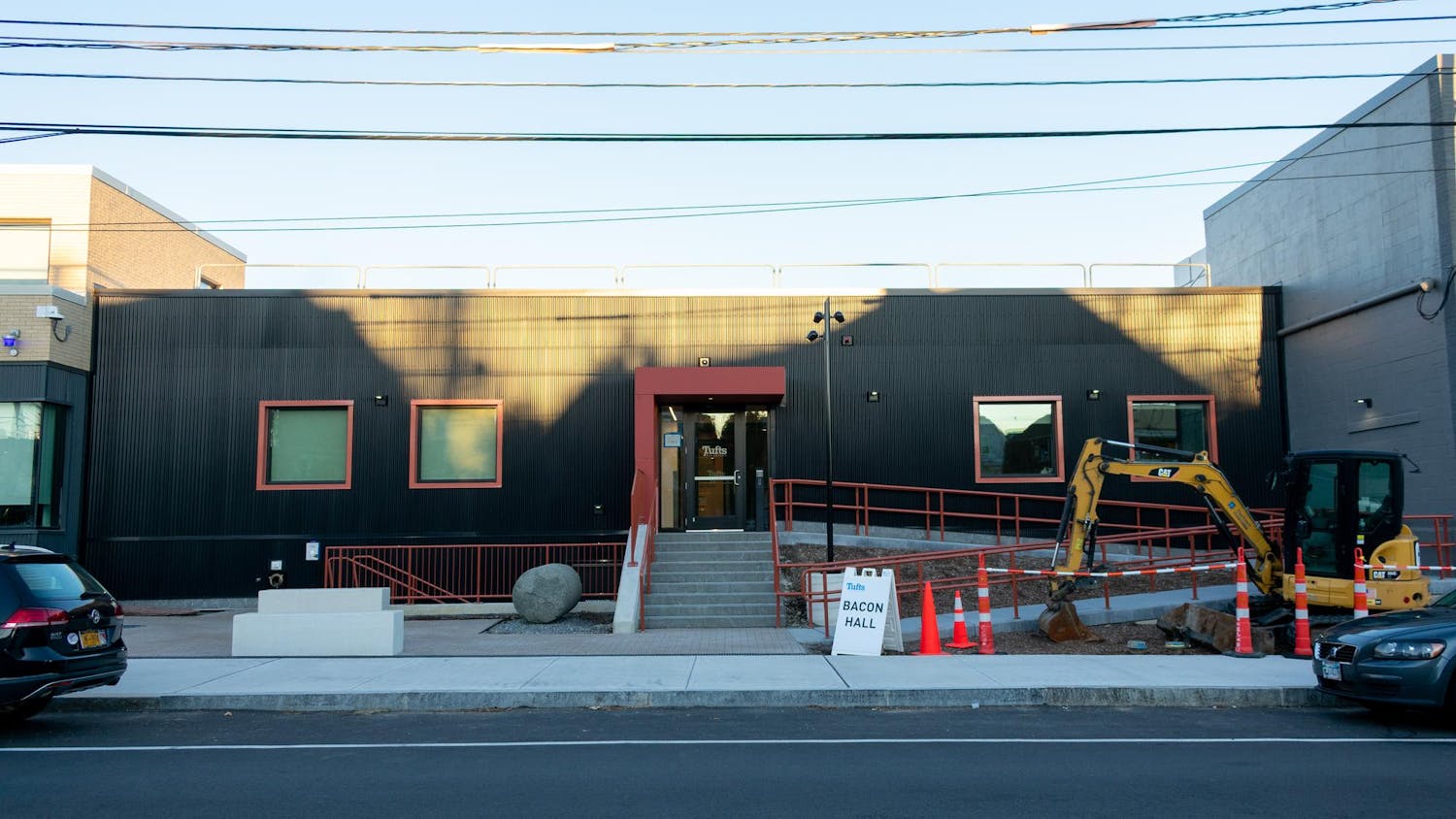The Tufts Community Union (TCU) Senate, Tufts administrators and various campus mental health organizations organized and held a town hall meeting to discuss mental health issues on campus on Tuesday. These groups included Counseling and Mental Health Services (CMHS), Tufts Ears for Peers and Active Minds.
Michelle Bowdler, the executive director of Health and Wellness Services at Tufts, said the event was proposed by students.
“We’re really excited to have this event … We’re really going to try to have a conversation [with students],” she said. “Students asked for a conversation on mental health and we’re thrilled about it.”
During the event, Bowdler presented statistics on mental health that set Tufts aside from the general population.
"Anxiety and depression are the major issues for Tufts students," she said.
Bowdler said that, according to the annual Healthy Minds survey, 14 percent of Tufts students experience depression and 15 percent experience anxiety.
She also highlighted the fact that 18 percent of respondents practiced self-injury in the past year.
Bowdler highlighted that while 54 percent of students perceived stigma toward receiving mental health care according to data from the 2007 survey, this figure has dropped to 35 percent in 2016.
Grant Gebetsberger, a Class of 2021 Representative on TCU Senate who spearheaded and moderated the event, explained his hopes for the event.
“I’ve been lucky enough to speak openly about my struggles with mental health … and I think it’s really important that we critically evaluate the resources that are available to students and making sure that we’re making those as accessible as possible,” he said.
He added that the event was organized to spark conversation about ways to address mental health care on campus. Gebetsberger offered one suggestion: programming for first-years to increase community cohesion and help destress students.
Gebetsberger also mentioned that CMHS' services for students are limited. Students receive a limited number of sessions which is rarely beyond a semester; afterwards, CMHS will refer the student to a community mental health provider, according to the CMHS website.
Sharif Hamidi, Rebecca Becdach and Janey Litvin, all Class of 2021 TCU Senate representatives, were also involved in the event’s organization, according to Gebetsberger.
During the event, McMahon mentioned that 64 percent of Tufts students reported some sort of academic impairment or mental health concern in the Fall 2017 Healthy Minds Survey.
In addition, 29 percent of students have used CMHS this year, according to McMahon.
McMahon added that, over the past three years, students have visited CMHS more frequently, with 610 students seeing a counselor on campus for the first time in the fall of 2015, 815 in the fall of 2016 and 918 in the fall of 2017.
Emma Lampropoulos, a junior and co-leader of Tufts Active Minds’ Leave of Absence committee, specifically talked about concerns about mental health leaves.
“A lot of students feel like they’re not welcome back on campus,” she told the Daily in an interview. “[Students] also find the process to be very confusing and so it’s very hard for students to first take the leave and then come back. They feel like a liability to Tufts.”
During the presentation, both Lampropoulos and Brianna Pastro, a junior and the co-president of Active Minds, presented data from their own surveys on students' experiences with mental health leaves of absence and CMHS in general.
"Of students who took the leave, 80 percent described the return process as difficult ... 53.8 of students who took the leave did not understand the policy," she said.
Pastro added that many students felt "powerless despite their best efforts to come back" and felt that the university had "pushed them away."
She recommended that students need more clarification and transparency for the process of returning after a medical leave for mental health, emphasizing the fact that some students with multiple counselor recommendations to return were not allowed back.
Pastro then spoke on student accessibility to CMHS. In particular, she cited the fact that the majority of respondents to Active Minds' student survey — 67.5 percent — would be most available for a counselor between 5 p.m. and 8 p.m., yet CMHS is only open from 9 a.m. to 5 p.m.
In addition, Pastro said that students feel they cannot see a counselor because of the one-semester limit for free counseling services.
She emphasized that many students feel they are not represented in by counselors.
"People are asking for more staff members who are trans, queer, people of color," Pastro said.
McMahon spoke of the university's interest in students' responses to different strategies for improving mental health on campus.
"One of my goals for today is to float different ideas that are coalescing to different actions ... and getting a sense of how that [lands] with students," McMahon said.
She added that the school is currently trying to enact change through the Mental Health Task Force, which was launched in the fall of 2016 to improve student access to mental health and on which she chairs the Models of Care subcommittee.
"We've been thinking about ways that we can enhance existing support for students in one-on-one clinical work and in group meetings that are happening now, how we can change the hours for some of the groups, and how can we incorporate telehealth," McMahon said, explaining that telehealth presents ways for students to access care online.
According to McMahon, one of the crucial aspects concerning mental health policies on campus is that change needs to be continuous.
"It's a holistic process. We think about ways that the broader climate, social media, different pieces of what students experience on a day-to-day basis," she said. "[Mental Health] is not a one-shot conversation."
TCU Senate, administrators host town hall to discuss mental health

Kari McNeil, a senior, and Brianna Pastro, a junior, co-presidents of Active Minds at Tufts, pose for a portrait at ‘Mental Health Monologues: Strength in Stories’ in Goddard Chapel on April 9.





